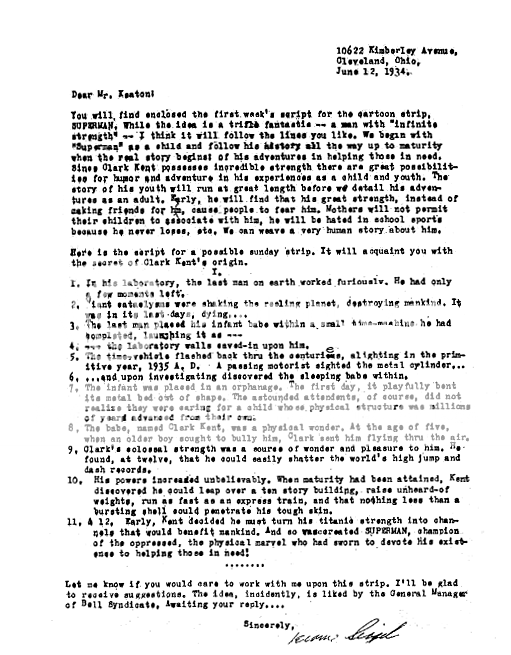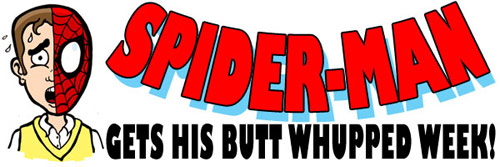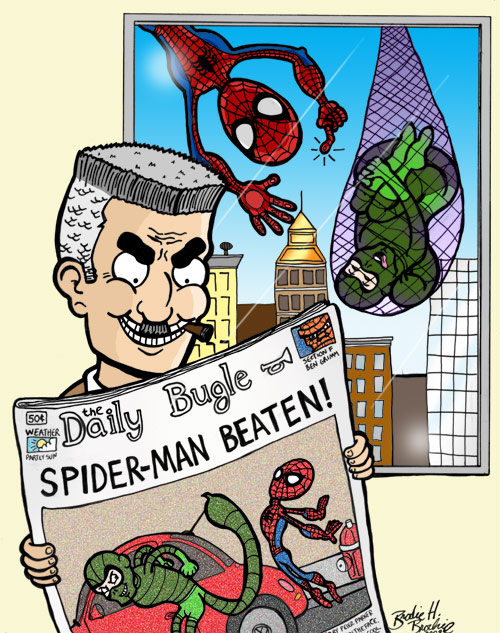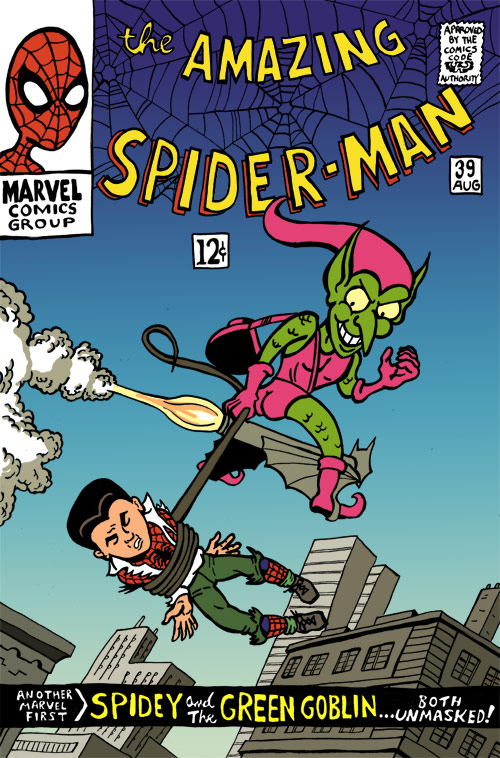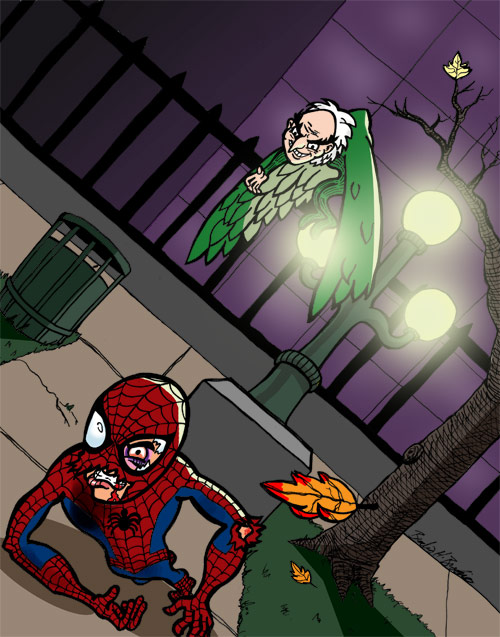 |
| Here's a sneak preview of the Geoff Johns and Jim Lee Bobblehead dolls from Funko! |
As excited as Dan DiDio is about DC Comics' newest initiative, the company's co-publisher knows he can walk the hallways of the DC Comics offices in Manhattan and pick up the same vibe from his co-workers.
And if he doesn't, out come the whips and scorpions.
"If we can convince the people here we're doing something brand-new and fresh, we have a good chance to really get the people outside on board," DiDio says.
That’s what we call in the trade “A mighty big if,” partner.
DC will re-number its entire line of superhero titles, beginning with all-new No. 1 issues starting Aug. 31 — 52 in all, including a new Justice League No. 1. Fittingly, the publisher put its creative superteam on its trademark superhero superteam.
Super!
Guided by writer Geoff Johns and artist Jim Lee, Justice League will begin its first year with an updated secret origin reflecting DC's new initiative, giving the group a reason for coming together that it lacked when the league first appeared in 1960. And while it will ultimately boast 14 members, at its core will be DC's A-list do-gooders: Superman, Batman, Wonder Woman, The Flash, Green Lantern and Aquaman.
"The approach is very much about who they are behind the masks and how they interact together and how these personalities mix," explains Johns, DC Entertainment's chief creative officer. "With the world's greatest superheroes, how does that team actually work? Do they all get along? Being able to pull together and see how that relationship is forged and continues to grow has to be at the heart of that book."
As you peruse that awkward mess of a sentence, keep in mind that this guy is a writer, folks.
For Lee, working on a team book is a different experience than a Superman or Batman, both of which he illustrated in recent years.
"When you have a Green Lantern mixing with a foil like Batman,
Batman is a BAT, Jim. You’re thinking of Foil-Man.
you get scenes that are comic-book history.
Or are “something that happens every month in Justice League already”.
There's the epicness of it all.
Right there! There it is! All the epicness!
You're dealing with iconic characters and you want to give them all equal grandeur and weight."
Well, no, no you really don't. In a character-driven story - especially one with an exceptionally large cast - you want to have inequality between the characters in order to have tension, which drives the story forward and gives characters the opportunity to react, grow, perform and generally define themselves in the context of the plot. Ideally, you have some characters whose roles are almost exclusively supportive and secondary, so that they help give structure to the larger story of the primary characters. This gives a story focus, and if you make everyone equal in value then you disperse the tension out across everyone and the story appears lackluster and devoid of emotional consistency. BUT HEY this guy is the artist, I'm just busting his balls now ...
In the rollout of the revamped DC Universe, some titles will return, a lot of titles won't
(low whistle)
and DC will have a wider range of books starting in September, DiDio says. In addition, three-quarters of the creative teams will be shuffled around — series that are successful and writer/artist combinations that work well together won't be tweaked too much, he says.
I'm not really sure why you'd mess around with the teams that currently work just fine at all, but tweak away, man. It's your company.
"We've got a new set of creators coming in with new voices in the DC Universe," DiDio says. "We really want to bring a new energy and excitement to our books."
The characters also are getting a makeover. While most of the specifics are still top secret, Lee says he worked with both staff and freelance artists to redesign costumes in a contemporary way as well as alter the physicality of many heroes and villains to modernize the DC Universe.
"You're trying to have your cake and eat it, too," Lee says.
Finally, something to like about all this business – cake.
"You're trying to keep the iconic elements there, but at the same time freshen up the look so that people are intrigued by what they're seeing and hopefully come and sample the wares."
“So they almost definitely should not have put me on this gig” said Lee, dismissively recalling Heroes Reborn.
The recent emphasis on diverse characters such as lesbian superheroine Batwoman, Hispanic hero Blue Beetle and African-American adventurer Cyborg (who will be a core member of Johns and Lee's new Justice League) also will continue.
Wow, they got one of everybody in there! Say, didn’t we have an Asian-American Atom around here somewhere? Whatever happened to that guy? Oh, that’s right, he’s dead in a matchbox.
There’s a particular irony in DC claiming to have an ‘emphasis’ on diversity - beyond how many of their ethnic and gender atypical characters they’ve chosen to kill off in recent years (although, to be fair, they killed off just about everybody at one point or another). More than that, though, they took their only two characters who’ve relied on prosthetics and appliances to overcome disabilities – one-armed archer Roy Harper and paraplegic Barbara Gordon – and made them whole-bodied again.
"Diversity" in fiction is more than just counting skin color, it's about depicting the unique struggles and experiences of sub-groups and sub-communities within a larger population. While they're promoting Cyborg as the African-American guy on the front of their pamphlet, they're conceiving of him not as the victim of traumatic injuries who requires his prosthetics to survive (as he was, you know, originally conceived) but as ... - well, read on for that. But, essentially, "diversity" seems to mean "You can't sell action figures if they're in a wheelchair".
"He's a character I really see as the modern-day, 21st-century superhero," Johns says of Cyborg. "He represents all of us in a lot of ways.
“I’ll name one.”
If we have a cellphone and we're texting on it, we are a cyborg — "
that's what a cyborg is, using technology as an extension of ourselves."
That is totally not what a cyborg is, Geoff. Cybernetics is expressly the scientific study of human physiological functions and the use of artificial mechanical means to replace them. That Cyborg has a manufactured eye which transmits visual information to his brain, that's what makes him a cyborg. That he can access Yahoo! Sports without an iPad isn't.
There will also be a lot of diversity in the products as well, DiDio promises.
There’s that word again.
"It's not just about straight superhero characters and stories.
“You saw we got Batwoman, right?”
We're going to use war comics, we have stories set in mystery and horror, we've got Westerns."
Groundbreaking. There's nothing more modern than the comics they published back in the Fifties.
While Lee allows that this kind of wholesale change is risky for DC, it's far more perilous to play it safe
By definition, it is never more perilous to play it safe. What monkey journalism school drop-out did they hire to write this thing?
and not periodically examine these characters and how they relate to the readership.
"It's part of our jobs to make sure that these characters stay dynamic and relevant," Lee says. "And that's what drove us on a creative level to make these kinds of changes."
And certainly not an attempt to make our comics lawsuit-proof by erasing all the Siegel, Kirby and Alan Moore contributions or to distract people from the economic swipe we've just delivered to brick-and-mortar comic shops or how by effectively having pulled out of those venues we'll have taken a shot at the indy and alternative markets which it's hard to argue were competitors at all. Dynamic and relevant, that's why!




